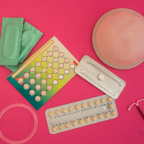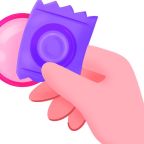HIV and AIDS
HIV -Human Immunodeficiency Virus – damages and lowers the immune system making it harder for the body to fight off infection.
AIDS – Acquired Immune Deficiency Syndrome – can develop from prolonged HIV and is a life-threatening illness.
This page will provide you with some information on HIV and AIDS including, signs and symptoms, how to get tested and the treatment.
HIV and AIDS
HIV -Human Immunodeficiency Virus – damages and lowers the immune system making it harder for the body to fight off infection.
AIDS – Acquired Immune Deficiency Syndrome – can develop from prolonged HIV and is a life-threatening illness.
This page will provide you with some information on HIV and AIDS including, signs and symptoms, how to get tested and the treatment.
Signs and Symptoms
After you’re infected with HIV, you may experience a short flu-like illness 2 to 6 weeks later. This illness usually goes away on its own. But even after the illness goes away, HIV can still damage your immune system.
For many years, people with HIV may not have any symptoms but even if you don’t have any symptoms, you can still spread HIV to other people.
That’s why it’s important to get tested for HIV if you’re sexually active.
How is it Transmitted?
The HIV virus can be transmitted from person to person through unprotected sex. However, the AIDS virus cannot – this develops from having HIV for a long time.
The most common way to get HIV is through having anal or vaginal sex without a condom.
As HIV is found in bodily fluids is possible to get it through:
- Sharing needles, syringes or other injecting equipment
- Transmission from mother to baby during pregnancy, birth or breastfeeding
How to Get Tested
The free, easy and discreet way to discover if you have an STI.
Call our Helpline
Speak to a friendly advisor and get the advice and support you need.
You’re not alone.
There are people who care about you and want to help you through this.
Prevention
The best way you can reduce the risk of getting any STI including HIV is:
- Use a condom during sex
- If you use drugs, never share needles or other injecting equipment
- Post-exposure prophylaxis (PEP) is a drug which can be used after exposure to avoid infection. To work, PEP must be taken within 72 hours (three days), and ideally should be taken within 24 hours.
- Pre-exposure prophylaxis (PrEP) is a drug which can be used to avoid infection if you feel you may become exposed
Treatment
HIV treatment uses antiretroviral medicines to stop the virus from replicating in your body and damaging your immune system.
There are a lot of different HIV treatments available but most people take a combination of medicines every day in the form of tablets. These medicines work together to keep the virus under control.
The goal of HIV treatment is to have an undetectable viral load. This means the level of HIV virus in your body is so low that it can’t be detected by a test. When your viral load is undetectable, you can’t transmit HIV to other people.
HIV treatment is very effective and people who take their treatment as prescribed can live long and healthy lives.
FAQs
HIV and AIDS
Clear answers to common questions
Contacting a sexual health service for the first time may be a little daunting, especially if you’re not keen on talking to someone. So, here are answers to some of the questions we get asked a lot.
How is HIV diagnosed?
If you think you may have HIV you can take one of our free STI self-test kits or you can visit your GP or local sexual health clinic – a trained professional will give you advice, support and provide treatment.
When should I get tested?
If you think you have any STI including HIV you should get tested as soon as possible to minimise the damage it might do. Anti-HIV medicine called post-exposure prophylaxis (PEP) may stop you becoming infected if taken within 72 hours of being exposed.
In what other ways might HIV affect me?
- You will not be able to donate blood or organs
- There are some countries you will not be able to visit










